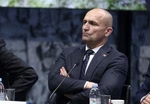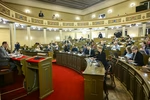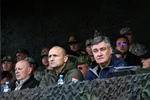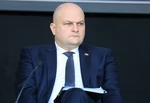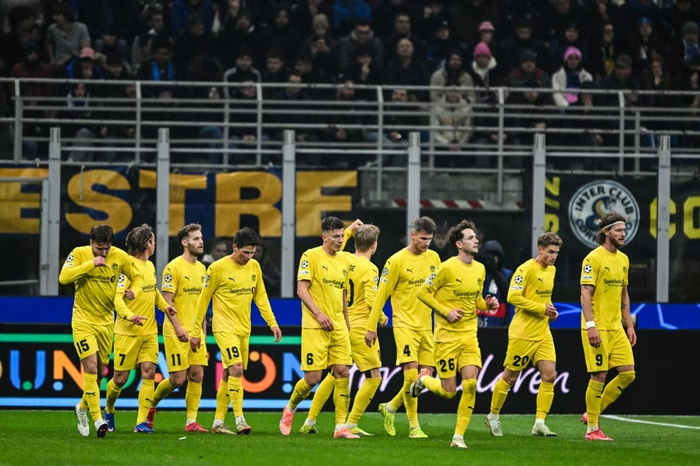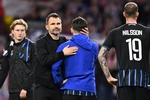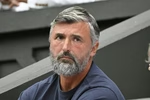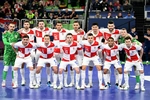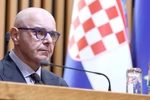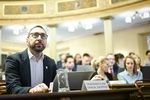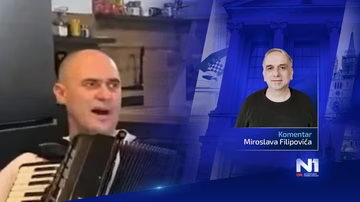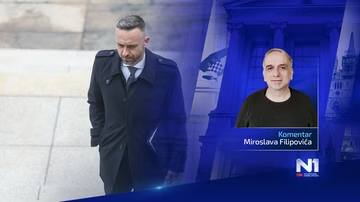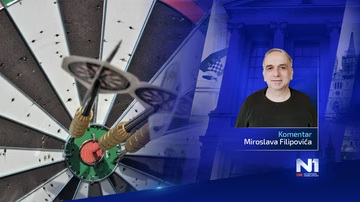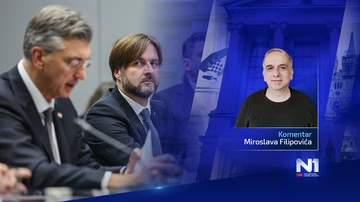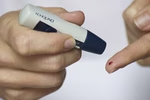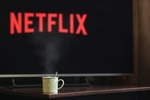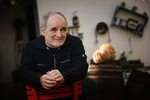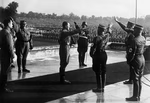
In an exclusive interview, North Macedonian Foreign Minister Nikola Dimitrov spoke to N1’s foreign affairs editor Ivana Dragicevic about the EU-Western Balkans Zagreb Summit, which is taking place on Wednesday afternoon.
Mr Dimitrov, what are your thoughts on the Zagreb Summit? Do you feel any resentment considering all the difficult steps North Macedonia has taken on its road to the EU? The country even changed its name. We see that the text of the Declaration does not mention the word “enlargement” or the green light for the beginning of the accession talks with Skopje and Tirana.
We’ve been waiting to begin the negotiations for so long, I spent most of the last year feeling like Bill Murray in the movie Groundhog Day. Everything must be done perfectly in order for you to wake up the next day, and then you realise you’re stuck in time. That’s why this green light given by the European Council on March 26 is a tremendous success; because it all seemed so unreachable.
We’re very grateful to Croatia because it was during Croatia’s six months at the helm of the EU that we managed to open that door. Also, we feel that, if we’re optimistic, the bigger the obstacles, the bigger the final success. It is a fact though that it would be better for southeast Europe and our region when the Zagreb Declaration would contain the word “enlargement.”
Even the word “completion” would be better, because we’re talking about enlargement, but the map of Europe won’t be any bigger even after all six Western Balkan countries become full members of the Union. So I prefer saying “completion.” Now, the Declaration begins with the phrase “European perspective”, which is important, as is the fact that European leaders took the time to discuss our region in the middle of the Covid-19 pandemic.
It’s also important that the European Commission is in charge of creating a robust investment plan or a plan for economic development, so there is commitment to ensure meetings on this level are held regularly. Let’s not forget – the first Zagreb Summit was held in 2000, the next one was in 2003, and then there was nothing for 15 years before the Sofia Summit, and now, two years after that, we’re back in Zagreb. So, if the EU manages to agree to meet with the leaders from the region every two years, that’s an important thing.
You were also on a diplomatic offensive, so to say, since that disappointing European Council Summit in October last year, until this March when you were given the green light to begin the negotiations. Do you think that North Macedonia will in June be given the date of the beginning of the talks? There’s been a lot of scepticism in member countries up until now, what is your estimate?
Through our politics, we are trying to create an atmosphere in which it will be difficult to say “no” to our story, to North Macedonia’s European story. We expect the Commission will draft the negotiations framework I guess by the beginning of July. I think that our progress at home is visible from two important reports – one by Bertelsmann and Nations in Transit by Freedom House. Both reports show that North Macedonia is one of the few countries which is making great progress. There is a lot of work to do still, but the trend is green – meaning, positive. If we continue with strong reforms and smart policy towards our neighbours and EU member countries, I think we have a good chance at starting the negotiations and having the first intergovernmental conference during Germany’s presidency of the EU in the second half of this year.
We’ve seen a lot of scepticism and it’s clear that enlargement is not very high on the European agenda at the moment, but do you think that this new methodology makes more sense? To put it simply, is that “money for reforms” approach and the potential access of candidate countries to structural funds better than the one we had before?
There are some important points in the new methodology, if not completely new elements. Reversibility has been introduced – so if a country regresses in important areas, like democracy, media freedom, rule of law, then the accession process regresses as well. We’re not afraid of that. We have fought to begin this process for too long to go back now. We will use this process as a tool to seriously tackle the problems and turn our country into a functional, prosperous European democracy. I think there is logic to the idea of linking funds with reforms. I’m convinced that the crisis caused by the pandemic has shown it is somehow geopolitically obvious our region will be a part of the EU.
However, it’s crucial to put an emphasis on reforms. In that sense, I think that the division of problems in the European Union, in some of its member countries, and the problems of the countries who wish to join the EU, I think that distinction is not good. We are all in the same boat and we have to fight for the European values. That’s why I think it makes sense that countries which are making progress are further motivated through funding in areas in which they are doing best.
Thirdly, within the new methodology, member countries have more of a say in the phase of preparing progress assessment reports. Since some sceptical EU member countries have expressed mistrust in the European Commission, now member countries themselves will be included in writing the reports. Also, this new methodology states very clearly what is expected from candidate countries, making the whole process a lot more specific and less bureaucratic. We’re not only talking about opening and closing chapters, but tangible progress.
French president Macron said there will be no enlargement until Europe resolves its internal problems. The Conference on the Future of Europe will be very important in that context. Earlier conferences have served as a chance to change some basic contracts of the EU. How important is it, considering all the subjects the conference will cover, that the Western Balkan countries participate?
It’s extremely important in many aspects. Firstly, if this region – as the EU leaders in Zagreb are saying – has a secure European future, it’s very important that we have a voice in creating that future. There are many challenges and crises that Europe has faced in the last years, like the migrant crisis for example. We have seen how important southeast Europe is geographically in the context of the Balkan migrant route in 2015 and 2016. Therefore, it is logical that, if we’re talking about these challenges, all the countries in the region surrounded by EU countries, and which have no geopolitical and strategic alternative to EU membership, are present. We know that Zagreb supports that and we will continue repeating that all the countries in our region should take part in the Conference.
Rule of law and the issue of the foundations of democracy are being brought into question these days in EU member states as well, Poland and Hungary for example. How much can that situation, together with some countries’ scepticism about enlargement and the rule of law in Western Balkans, affect public opinion and treatment of candidate countries from the Balkans?
In our country, Europe – and European Union, of course – means order, normality, prosperity, justice, future. So these associations are probably linked to the basic narrative of the European Union. The EU has two main magnets, two pillars – the first is the common market, the largest globally – and the second are those values. That’s why it’s extremely important that the EU remains consistent and direct where those main principles are concerned. Unfortunately, people who are leaving this region to look for the European way of life do it for exactly these reasons, they go to live in EU countries. That’s why we, and the EU itself, will have to pay serious attention to those principles, mainly at home, but also through regional cooperation. Those are the main problems of this region, even though we spend a lot of time addressing other issues.
You’ve mentioned the issue of regional cooperation. It took a lot of effort to resolve the dispute with Greece about your country’s name, and now a new issue has surfaced, which has been a long time coming. Bulgaria, and your counterpart, Bulgarian Foreign Minister, have taken a very strong stand in refusing to recognise Macedonian as a separate language. That’s a completely different case from the dispute with Greece, since Macedonian is an internationally recognised language. What do you think about this attitude from your neighbours in 2020?
The Prespa agreement with Greece resolved the issue opened with the UN Security Council Resolution. That’s how the story of North Macedonia’s ID card ended. In the UN, in the world, we are North Macedonia, our language is Macedonian. The essence of the Prespa agreement was to add North to the name Macedonia, since the Macedonian language is mentioned in the document. Through our right to self-determination, we have the right to be Macedonians. I think this right to self-determination and self-expression cannot be controversial in Europe in 2020. It would be against the European principles to make us choose between the Macedonian language and EU membership. It would be a failure for the EU. Those two goals are fully compatible, and, with Bulgaria, it will take a lot of work and wisdom to make progress, where our right to self-determination will apply to living Macedonians. Historians may discuss the heroes of our past, who are important to both our peoples. What we want is to join the EU, and the adjective European contains very clear principles.
There was a lot of political tension in your country over the name change. The election scheduled for last month had to be postponed due to the pandemic. You have also officially become a member of Nato during the pandemic. When will the election be held and is there still room in North Macedonia for destabilisation, political or otherwise?
Unfortunately, the pandemic forced us to postpone the election which was supposed to be held on April 12. I think that election would have ushered in a new, much more productive time for the entire country. The Nato membership is here, economic indicators were very positive for the entire year, negotiations with the EU…
Due to the pandemic, political leaders in the country will have a meeting next week, the election will be one of the main topics. We now have a caretaker government, which was mainly supposed to ensure fair election, and now they’re fighting the pandemic. I think it would be healthy to make sure the country has an elected government as soon as possible, which will then be able to create policies, solve problems, and begin the EU accession talks. Personally, I’m a candidate so I can’t be completely objective even though I’m not a member of any party. The fact is that we managed to take our fate into our own hands and begin a completely new chapter of North Macedonia’s history by creating its future.
I’m optimistic looking into the future as well. And last, but not least, across all polls held in February and March – back when we thought the election would be held in April – the issue of rule of law and justice were among the biggest concerns for voters. That means the politics will be under pressure to deal with the things which are key to our future – meritocracy and justice. And that public opinion makes me optimistic about the future.
Apart from the rule of law, the Zagreb Declaration includes a lot of other important topics, such as the economy, energy, the younger generations, fight against crime and corruption… there is also the question of security and the message that the Western Balkan countries must align themselves with European foreign and security politics. It also mentions preventing “outside influence” on the region, mainly talking about Russia, misinformation, and so on. How did the government and the public in North Macedonia address this issue?
This is a problem for which neither we nor Europe have a real solution. We can call it fake news, misinformation, hybrid threats. I think the best response for fake news is precisely media literacy, a long-term measure which includes the education system. Secondly, I think that “real news” and media freedoms are a good way to respond to fake news. I even think it’s legitimate that big global powers are fighting for influence. However, what they need to know is that we are the ones who are creating our own path, our own future. And we’re making it our own.
By joining Nato, we have practically fulfilled the oath of the previous generation which has, 27 years ago in 1993, unanimously adopted a Declaration in the Skopje parliament which said that our future must be in the Nato. That is our choice and it is our sovereign right to be where we want to be, so this debate bothers me in a way. We didn’t do it for Washington or for any other Nato member. We did it for ourselves, because we believe it makes us more stable, safer, and because we want to be in the club which talks about the rule of law, democracy, and human rights.
Kakvo je tvoje mišljenje o ovome?
Pridruži se raspravi ili pročitaj komentare



 Srbija
Srbija
 Bosna i Hercegovina
Bosna i Hercegovina
 Slovenija
Slovenija









